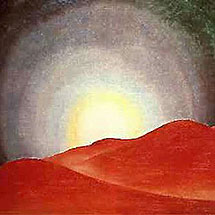| 6. The sun |
 |

| The sun is the star around
which orbit the planets that make up our solar system,
including Earth. It is an immense ball of fire, a burning
mass thanks to which we have light and heat. Solar energy
travels millions of kilometres through space and lights
and heats the Earth’s surface, and is the basis
of all activity on our planet: weather phenomena, light
and heat conditions essential for life, the seasons, day
and night, etc. In fact, if it weren’t for the protective
barrier of the atmosphere, solar radiation would burn
us up and life would disappear from the face of the Earth. |


[ enlarge image ] |
 |
| Relating facts and values. There are different
ways to understand what values are: they can be things that are
essential to life (water, food, etc.), or people’s beliefs
about what they consider important (working hard, saving, etc.).
On the other hand, some thinkers consider that values cannot be
described in the same way as facts, because they are subjective.
The relationship between facts and values is very important in
ethics. |
| Reflect in groups, giving reasons for your statements: |
| 1. |
The sun radiates energy. That is a fact. Is it
also a value? |
| 2. |
Sunlight makes life possible. That is a fact.
Is it also a value? |
| 3. |
Sunbathing with moderation is healthy. That is
a value. Is it also a fact? |
| 4. |
The beauty of the nature is a value. Is it also
a fact? |
| 5. |
Being happy is a valuable thing. Can you imagine
something valuable that would not make you happy if you had
it? |
|
|
 |

 |
| © Grup IREF 2003, with the support of the European Commission, DG XXII (Socrates/Comenius 3.2) |
[ print ] |
|
|
|
|